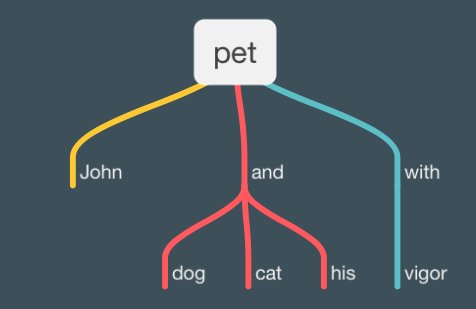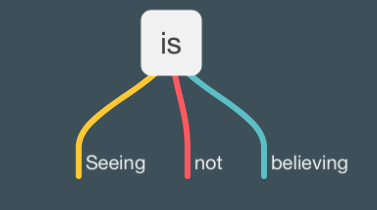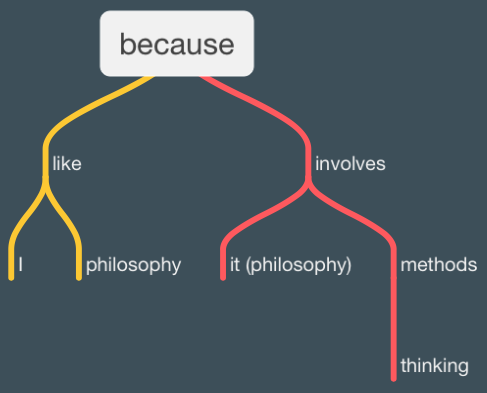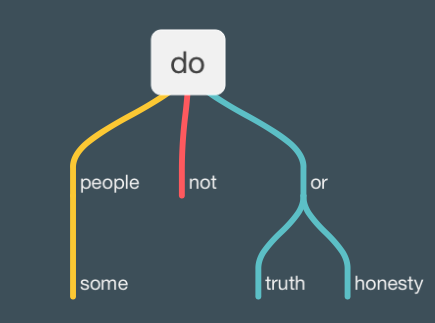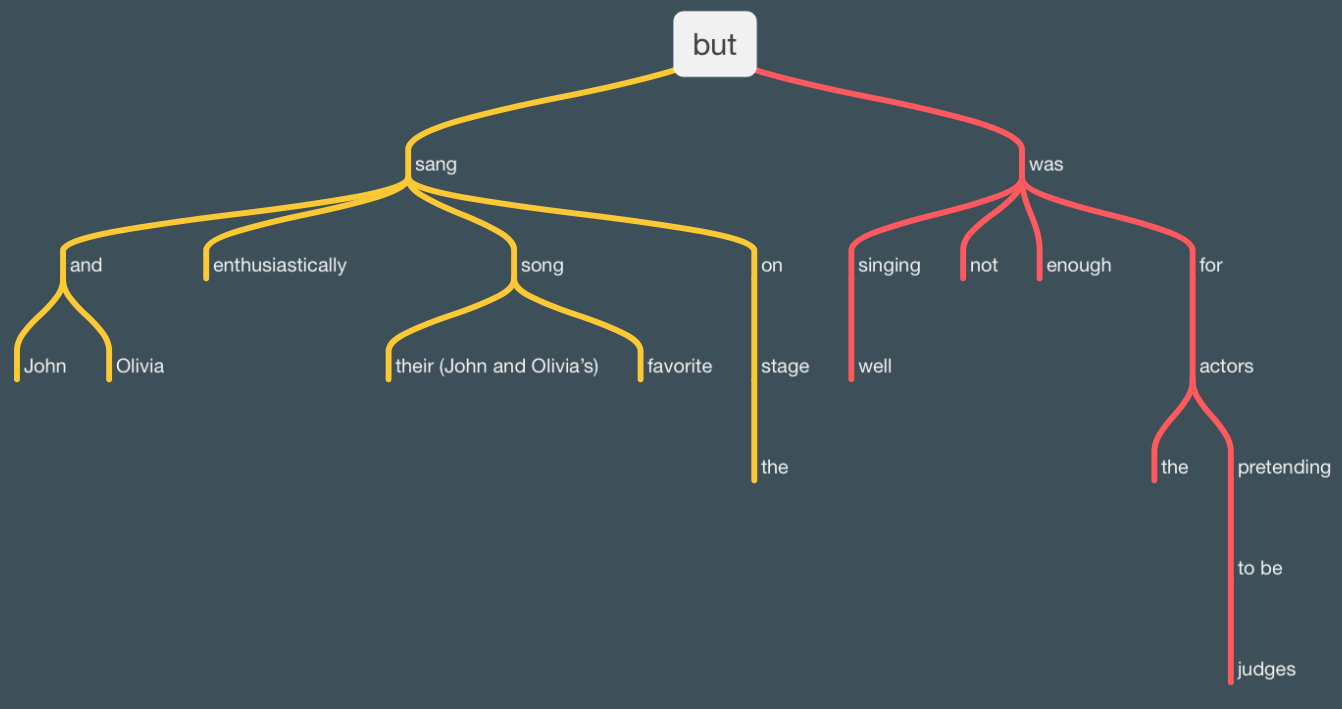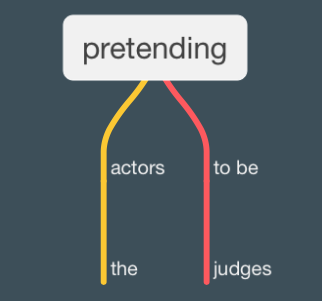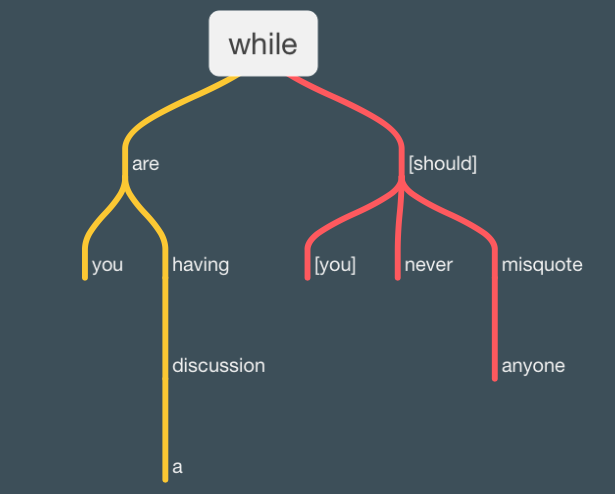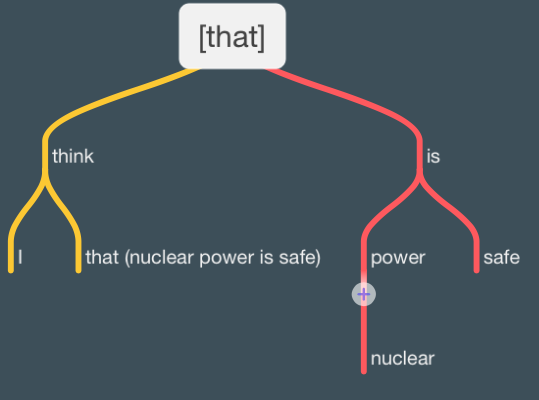First I was trying to have a question for every word in the exercise sentences. I found that very hard and thought the questions and answers were very awkward. I got frustrated because I thought I was failing miserably. I checked whether other peopled had allowed multiple words as answers, which they did.
At this point I took a break because I had gotten a bit emotional. In the break I thought that I had been cargo culting and guessing the teachers password (thinking there had to be only one word for the answer) instead of thinking what would be useful for my learning. A great thing about learning on this forum is that I don’t have to learn in whatever way an authority figure says I have to, like in school, I can learn what I think is useful in the way I think is best. I also thought that I should be okay with the questions and answers being a bit awkward.
I came back for a second session with the mindset to be less perfectionist and do the exercises in a way that I thought would be useful.
I’m open to criticism and discussion of my emotions here.
The timers I took for these exercise were inaccurate, except for the last two, because I was jumping between exercises. The first session took ~1 hour, while the second session took ~30 minutes.
First session
<John> <pet> <his <dog and cat>> <with vigor>.
John pet [pets]
What action happened? Pet.
Who petted? John.
What got petted? Dog.
What else got petted? Cat.
How were the things linked? And.
Whose dog and cat got petted? His = John’s.
How was the petting done? With.
With what was the petting done? Vigor.
<Seeing> <isn't> <believing> .
Can’t omit any words.
What link happened? Is.
How is the link? Not.
What has the link? Seeing.
What is the link not? Believing.
{<I> <like> <philosophy>} because {<[philosophy]> <involves> <thinking methods>}.
{I like philosophy} because {[philosophy] involves methods}
What is the action? Like.
Who likes? I.
What does I like? Philosophy.
What else happened? Involves.
What involves? It = philosophy.
What does philosophy involve? Methods.
What type of methods? Thinking.
How are the actions linked? Because.
<Some people> <don't> <love> <truth and honesty>.
People don't love [concepts].
What action happened? Do.
How was it done? Not.
Who did not do? People.
Which people? Some.
What do some people not do? Love.
What was not loved? Truth.
What else was not loved? Honesty.
How were the things linked? And.
{<John and Olivia> <enthusiastically> <sang> <their <favorite> song <on the stage>> } but {{<singing> <well> <wasn't> <enough>} for {<the actors> <pretending> <to be judges>} }
{[People] sang song} but {{singing well wasn't enough} for {actors pretending to be judges}}
What action happened? Sang.
Who sang? John.
Who else sang? Olivia.
How were they linked? And.
How did they sing? Enthusiastically.
What did they sing? Song.
What song? Favorite
Whose favorite song? Their = John and Olivia’s
What was the location of the singing? Stage.
What part of the stage? On.
Which stage? The.
Second session
<John> <pet> <his <dog and cat>> <with vigor>.
John pet [pets]
What action happened? Pet.
Who petted? John.
What got pet? Dog and cat.
Whose dog and cat got petted? His = John’s.
How was the petting done? With vigor.
<Seeing> <is not> <believing> .
Can’t omit any words.
What link is? Isn’t.
What has the link? Seeing.
What is seeing not? Believing.
{<I> <like> <philosophy>} because {<[philosophy]> <involves> <thinking methods>}.
{I like philosophy} because {[philosophy] involves methods}.
What is the action? Like.
Who likes? I.
What do I like? Philosophy.
Why do I like philosophy? Because it involves thinking methods.
What is the action of the clause? Involves.
What involves something? It = philosophy.
What does philosophy involve? Methods.
What type of methods? Thinking.
<Some people> <do not> <love> <truth and honesty>.
People don't love [concepts].
What action happened? Don’t.
Who did not do something? People.
Which people? Some.
What do some people not do? Love.
What was not loved? Truth and honesty.
{<John and Olivia> <enthusiastically> <sang> <their <favorite> song> <on the stage>}, but {{<singing> <well> <was not> <enough>} for {<the actors> <pretending> <to be judges>} }.
{[People] sang song} but {{singing well wasn't enough} for {[fake] judges}}.
What action happened? Sang.
Who sang? John and Olivia.
How did they sing? Enthusiastically.
What did they sing? A song.
What song? Favorite.
Whose favorite song? Their = John and Olivia’s
Where was the song sung? On stage.
Which stage? The.
What was the catch? But.
What link was? Wasn’t.
What had the link? Singing.
How was the singing? Well.
What was the singing not? Enough.
Enough what? For.
What was the action? Pretending.
Who was pretending? Actors.
Which actors? The.
What were they preteding? To be.
To be what? Judges.
While {<you> <are> <having <a discussion>>}, {[<you> <should>] <never> <<misquote> <anyone>>}.
{never misquote} while {having discussion}.
What action is implied? Should.
Who is it implied that should do something? You.
What are you commanded to not do? Misquote.
When are you allowed to misquote? Never.
Who should you never misquote? Anyone.
At what time does this apply? While.
While what happens? Are.
Who are? You.
What are you? Having.
What were you having? Discussion.
Which discussion? A.
14 min
{<I> <think>} that {<<nuclear> power> <is> <safe>}.
think nuclear power is safe.
What action happened? Think.
Who thinked? I
What did I think? That.
What link is “that” talking about? Is.
What is? Power.
What kind of power? Nuclear.
What is nuclear power? Safe.
7 min
